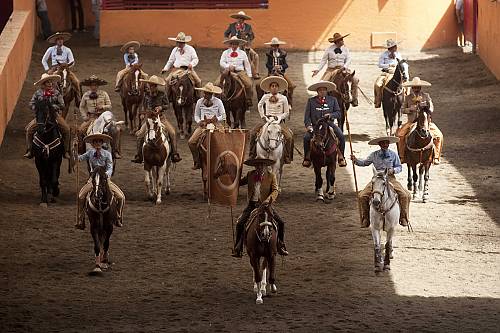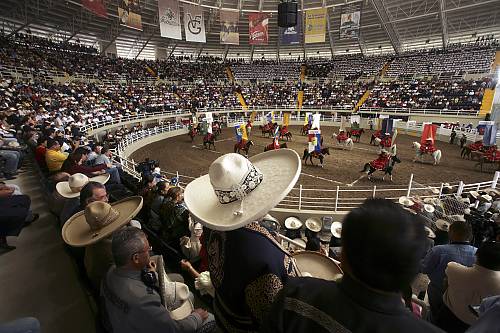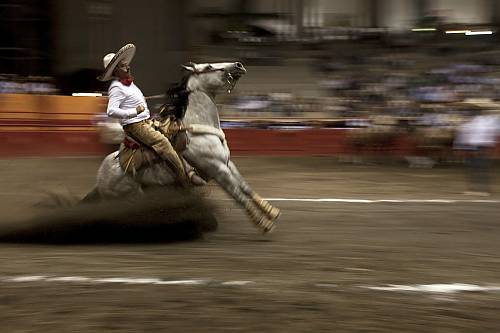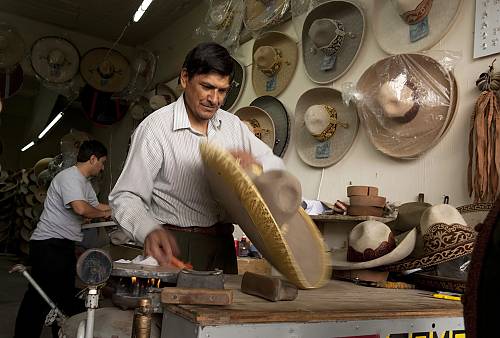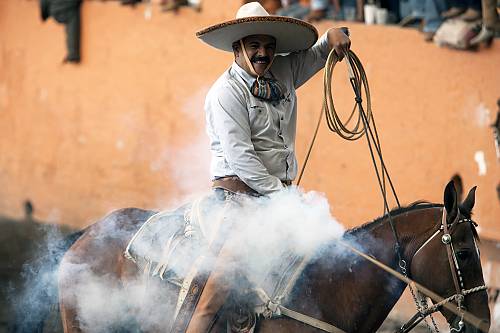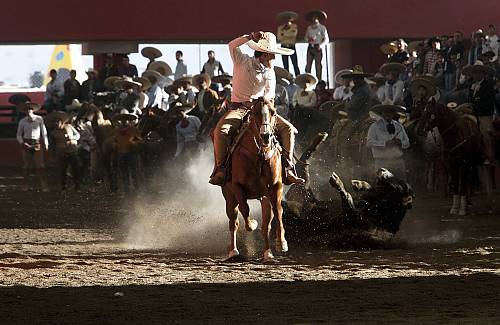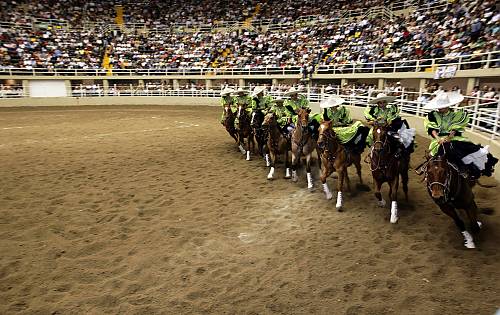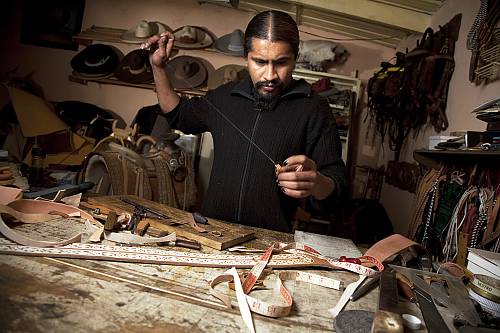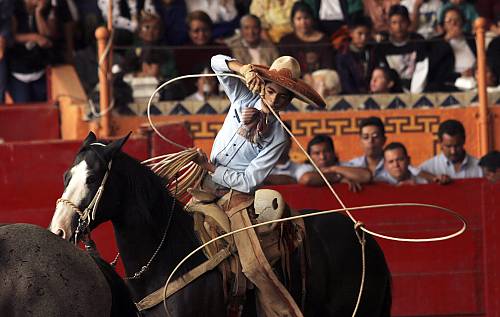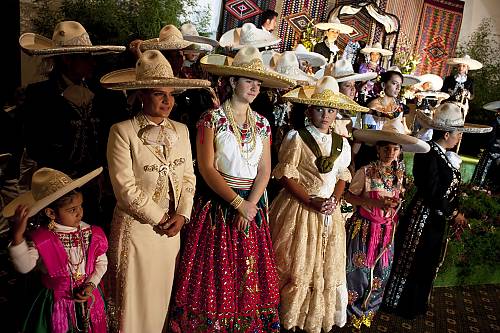Charrería, equestrian tradition in Mexico
Inscribed in 2016 (11.COM) on the Representative List of the Intangible Cultural Heritage of Humanity

Charrería is a traditional practice of livestock herding communities in Mexico. It was initially used to help herders managing livestock from different estates better coexist. Techniques were then passed on to younger generations within families. These days, purpose-built charrería associations and schools assist in continuing transmission of the tradition, also considered a sport, by training members of the community, including up to competition level. Various categories of charrería performed in front of an audience are called charreadas. Charreadas give spectators an opportunity to see livestock herding skills, for example roping and reining using wild mares and bulls. Trained herders demonstrate their abilities on foot or horseback while dressed in traditional costume that features a wide-brimmed hat for a charro (male herder) and a colourful shawl for a charra (female herder). The outfits, as well as equipment required for the practice, like saddles and spurs, are designed and produced by local artisans, forming additional components of the traditional practice. Charrería is considered an important aspect of the identity of bearer communties and their cultural heritage. Practitioners also see the tradition as a way of transferring to younger generations important social values, such as respect and equality for people in the community.
